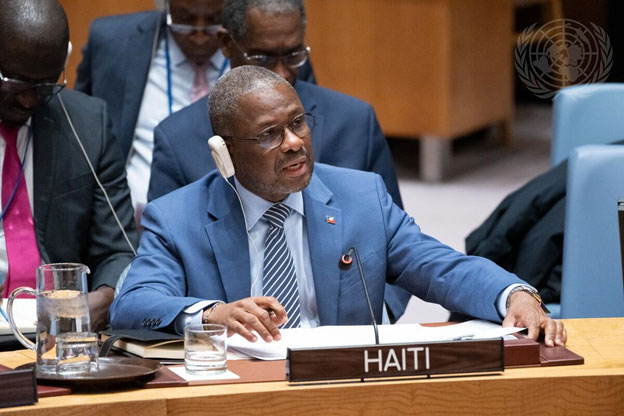UNITED NATIONS, Feb 05 (IPS) – The humanitarian situation in Haiti continues to deteriorate as armed gangs expand their control in Port-Au-Prince and escalate acts of violence throughout the nation. Due to heightened insecurity, civilian displacement has reached new peaks, with hunger, disease, and the economic crisis having grown worse. With access to basic services diminished, approximately 5.5 million Haitians are dependent on humanitarian aid for survival. However, relief efforts have been severely hampered due to safety risks, restricted mobility and the vast scale of needs.
On January 27, the Viv Ansamn armed gang invaded a neighborhood in Kenscoff, a town that borders Haiti’s capital city, Port-Au-Prince. Viv Ansamn members attacked civilians and set numerous homes ablaze. The eight-day assault resulted in 50 civilian casualties and dozens of additional injuries. The International Organization for Migration (IOM) estimates that over 1,660 residents were displaced.
Haitian National Police (HNP) spokesperson Michel-Ange Louis Jeune informed reporters that police forces had managed to apprehend and kill at least 20 gang members so far, and that additional security measures were being taken to ensure accountability and protect the community from reprisals. However, police and government responses were criticized by civilians as many believed that the attacks were preventable.
Earlier this week, intelligence warnings from the Ministries of Interior and Justice received intelligence warnings that reported that there was a strong likelihood of gang violence breaking out in the capital and surrounding areas. Additionally, many civilians reported that plans of the attacks were posted onto social media days in advance.
Haitian Prime Minister Alix Didier Fils-Aimé confirmed that intelligence personnel, the Prime Minister’s Office, the Ministry of Justice and Public Security, and the Ministry of the Interior and Local Authorities were all informed of Viv Ansamn’s intention to attack in Kenscoff. Despite this, law enforcement failed to mobilize and respond effectively.
“It was announced on all the social media platforms. On Jan. 23 the Kenscoff police station was aware. On Jan. 25 the mayor’s office issued a curfew notice. The police said they had means and could respond. Today… the gangs have been reinforced in Kafoubèt. They came with ammunition on horseback, they’ve taken a church as their headquarters, and the population is out in the streets, for how long we don’t know. The police have shown that they are powerless,” said Marie Yolène Gilles, a human rights advocate who had been investigating the attacks in Kenscoff.
On February 3, the UN Office for the Coordination of Humanitarian Affairs (OCHA) issued a situation report in which they detailed the heightened insecurity in the Port-Au-Prince Metropolitan Area (ZMPAP). According to their estimates, ZMPAP remains the epicenter of violence and displacement in Haiti, with armed gangs controlling over 85 percent of the capital city.






